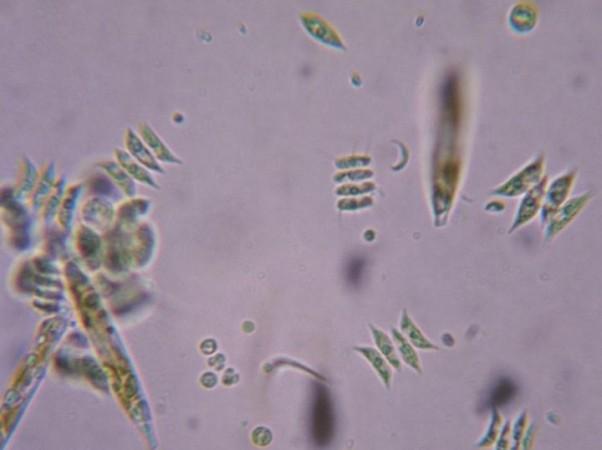
There are those discoveries that promise the advancement of the human race, and then there are those that could make you an imbecile.
The scientists at the Johns Hopkins Medical School and the University of Nebraska have reportedly discovered an algae virus that infects the brains of humans and is capable of making us "more stupid".
It was during the research for a completely unrelated study on throat microbes that the scientists realised that the DNA in the throats of healthy people matched that of a chlorovirus known as ATCV-1. So far known for infecting the green algae found in freshwater lakes and ponds, humans were thought to be immune to this "dumbness-inducing" virus.
However, during the course of the former experiment, this virus was discovered in the throat swabs taken from 44% of the 92 healthy study participants. Further, the scientists found that the virus in fact affects the cognitive functions of the brain by decreasing spatial awareness, shortening the attention span and so on.
The findings of the research have been published in the Proceedings of the National Academy of Sciences (PNAS) journal under "Chlorovirus ATCV-1 is part of the human oropharyngeal virome and is associated with changes in cognitive functions in humans and mice".
With this discovery, scientists have been able to prove for the first time ever that microorganisms are capable of triggering delicate physiological changes to the human body, without impacting the immune system as a whole.
"Many physiological differences between person A and person B are encoded in the set of genes each inherits from parents, yet some of these differences are fuelled by the various microorganisms we harbour and the way they interact with our genes," lead investigator Dr Robert Yolken, a virologist and pediatric infectious disease specialist at the Johns Hopkins Children's Center and director of the Stanley Neurovirology Laboratory at Johns Hopkins ,told Healthline.
"It's the beginning, I think, of another way of looking at infectious agents — not agents that come in and do a lot of damage and then leave, like Ebola virus or influenza virus," he added.
However, there is no need to start panicking and avoiding pools and ponds forever, as the scientists do not yet know how the ATCV-1 virus infects humans or makes us "more stupid".
As one of the contributors, James L Van Etten, said, "While the virus is common in lakes, it's not just a question of swimmers and boaters being infected. If it were that easy to pick up the virus, a very different picture of its effects would emerge".
"It points us in a direction of looking to see if we can improve people's cognition, their behaviour, by changing the composition of their microbiome," Yolken said.

















